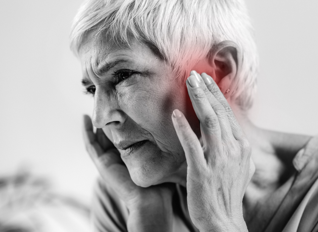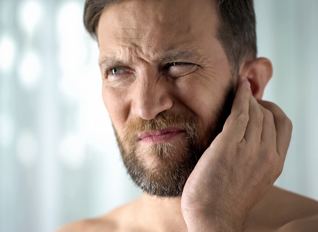What is Tinnitus?
Tinnitus is a condition characterised by the perception of noise or ringing in the ears without any external source. It is often described as a persistent ringing, buzzing, hissing or clicking sound, though the perception can vary from person to person. This auditory sensation can occur in one or both ears and may be constant or intermittent. Despite the lack of a universally effective cure, many individuals with tinnitus find relief through various different coping mechanisms and treatment approaches tailored to their specific needs.
What are Tinnitus Symptoms?
Tinnitus affects 1 in 7 individuals, but you don't have to suffer in silence. Imagine a constant high-pitched whine that disrupts your sleep, causes irritability, and amplifies stress and anxiety. Perhaps it's a low rumble, clicks, or even sounds resembling morse code or children's laughter. Regardless of its form, tinnitus is exhausting, and finding relief can feel like an uphill battle.
What are the Main Tinnitus Causes?
While 30% of people will experience tinnitus in some capacity, the triggers are diverse, ranging from physical ear damage to emotional stress. It's not just concert-goers who need to be wary, tinnitus can affect anyone.
Tinnitus being triggered can often be associated with:
- Anxiety and depression
- Ménière's disease
- Forms of hearing loss
- Medical conditions including thyroid, diabetes and multiple sclerosis
- Medical treatment including antibiotics, chemotherapy medicines, aspirin and non-steroidal anti-inflammatory drugs (NSAIDs)
How Long Does Tinnitus Last?
The length of time that tinnitus lasts for varies from individual to individual. Tinnitus can last a matter of weeks to months and years.
It is therefore crucial to determine whether the ringing symptoms you may be experiencing are tinnitus, in order to manage it. That is where our Free Tinnitus Health Check comes in.
Book Your Free Tinnitus Health Check
If you suspect you're grappling with tinnitus, it's time to take action. Our free 15-minute Tinnitus Health Check offers a relaxed, supportive environment where our expert audiologists can assess your ear health and conduct initial tests to determine if you're experiencing tinnitus. Don't suffer alone.





Here's what our clients think of Hearing & Tinnitus Services at Bayfields
More on Tinnitus
Frequently Asked Questions About Tinnitus
Do hearing aids help with tinnitus?
Hearing aids can be highly effective in managing tinnitus, which is the sensation of ringing, buzzing, or whistling in the ears when no external sound is present.
For many people, especially those who also experience hearing loss, hearing aids improve overall hearing clarity and help the brain focus less on internal sounds. This can significantly reduce the impact of tinnitus and improve your quality of life.
Can Ear Plugs Help Tinnitus?
Ear plugs can help manage tinnitus in noise-triggering environments such as concerts, festivals, or construction sites. Custom-made or high-fidelity ear plugs protect your ears from loud noise, which can worsen tinnitus or cause further hearing damage.
However, overuse of ear plugs in quiet settings may actually make tinnitus seem louder. This happens because blocking external sounds can make internal noises more noticeable. Our audiologists can advise whether ear plugs are right for your specific tinnitus triggers.
What are the different types of Tinnitus?
There are three different of types of tinnitus - subjective, objective and pulsatile. The information below explains each type in more detail.


